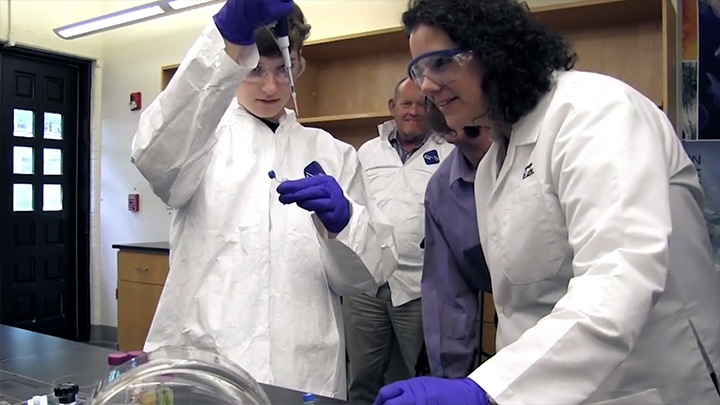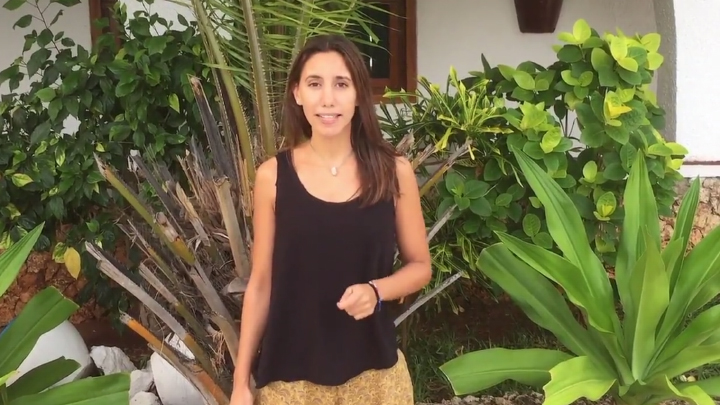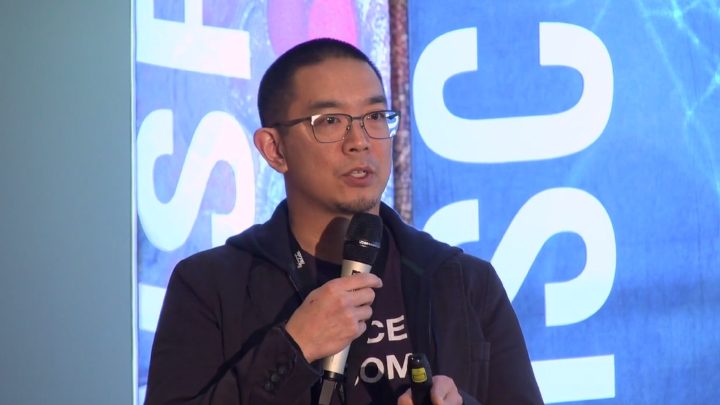Molecular Biology Summer Workshops
Script
Why was the course created?
Steve Williams:
In 1985, Barton Slatko at New England Biolabs and I were working on DNA sequencing, we published some papers and we had this idea of doing a course because lots of people wanted to come to our labs to learn DNA sequencing… and so we thought, well, it would be more efficient doing a course rather than have people come see us individually..and it sort of evolved from there.
Lori Saunders:
We've successfully graduated over 4,000 students over the past 29 years.
Has the course evolved over 30 years?
Steve Williams:
So, the course curriculum since 1986 has evolved tremendously, so almost nothing is the same as it was then…there have been a lot of advances like the polymerase chain reaction, which have completely revolutionized what we do in the course…things like next gen sequencing are completely new, of course.
Do students need a molecular biology background?
The participants in the course often come in with very little molecular biology background, so we need to teach them basics of DNA synthesis and, you know, DNA repair, transcription and translation,,.and all of that…so they completely understand what's going on.
One of the things that we try to do is instead of just having steps, we try to have explanations for why they're doing every single step…and in lecture, we do the same …we take them through every step for every protocol and make sure they understand why they're doing each step and what each reagent in the step is for…why it’s there and what it's doing…and I think that's really important because when people have trouble with an experiment getting it to work, if they understand why they're doing all the steps it makes it a lot easier to troubleshoot.
Do I need laboratory experience?
Lori Saunders:
You don't…you don't need any experience whatsoever, even when the students come to us for the summer workshop, a lot of them don't have experience with micropipetting, so we take them from the very beginning… and at the end they are, you know, they're relatively experts in terms of molecular biology techniques that we’re teaching them.
Can non-scientists take the course?
Steve Williams:
We've had engineers, lawyers, patent attorneys, CEOs of companies who want to understand what their researchers are doing, the backgrounds are really quite variable…we've even had a few journalists come and take the course…who were science journalists, science writers, who wanted to understand the biology…we’ve even converted a few physicists into biologists…so!
What did you think of the course?
Brian Abrams:
I thought it was fantastic…it was immediately appropriate and applicable to what I'm trying to do with our biotechnology program at Groton School…so it was our wonderful in the sense that it was completely hands-on…the lectures were informative and useful so the complete package was immediately useful for me.
What makes you so passionate about this course?
Steve Williams:
As an educator, you know, it's great to be able to do science, and published papers, and make contributions that way, but as a teacher, you can impact the work done by hundreds or thousands of people…so really, the most important thing about this course, to me, is that we’ve had almost 4,000 people take this course now…so, you know, there's this ripple effect, where as an individual, you can have some effect on science, but if you’re a teacher, you have, you know, an impact that’s, I think, really hard to measure.
Related Videos
-

NEB® TV Ep. 2 - STEM Education -

Bridging the Gap Towards a Truly Global Scientific Community -

Promoting Scientific Literacy

